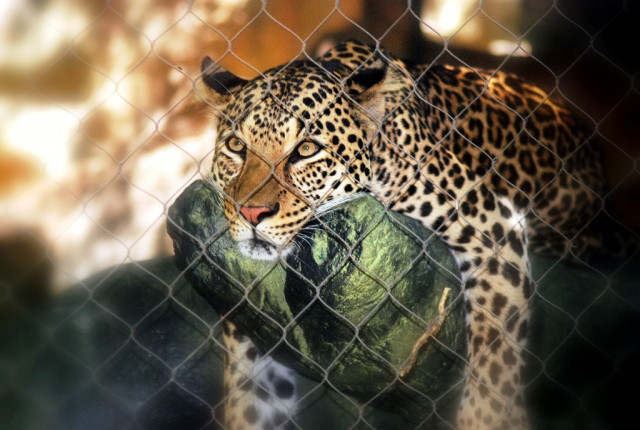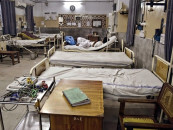Conservation: ‘As few as four leopards left in national park’
WWF-Pakistan gets Rs30m for two-year research project.

The Human Welfare and Nature Conservation Society (HWNCS) has provided funds of Rs30 million to the Worldwide Fund for Nature-Pakistan (WWF-Pakistan) to promote research and conservation of the common leopard in Ayubia National Park, Khyber Pakhtunkhwa.
The funds over the next two years will help research the population of leopards, their movement and their behaviour patterns through satellite collars and faecal and genetic sampling procedures.
Uzma Khan, a wildlife biologist and WWF representative for the project, said the population of leopards in the area “could be as few as four”.
“I conducted interviews of local residents in Ayubia and they all believe the population to be in the thousands,” she said.
“But one leopard looks for prey in an area about 20 to 60 square hectares.
So it is quite possible for a single leopard to be spotted at one corner of the park one day and the next corner the very next day. The villagers assume that they are everywhere.”
Khan said leopards were on the verge of extinction as a result of hunting by communities dependent on livestock for living. “Leopards attack their livestock,” she said. Leopards have also become more vulnerable due to a decline in forest cover, she added.
She said that the funds would be used to make a documentary about leopards aiming to improve understanding of the animal and the need for their conservation among the people sharing their habitat. Nisar Malik of Walkabout Films (PVT) Ltd would film the leopards during the research.
“Leopards are solitary animals and usually active only at night.
Therefore, we will have to film throughout the night for months to get substantive footage, and travelling and accommodating a big filming crew will add to the cost,” she said.
Khan will also work with Dr Sandro Lovari, a wildlife biologist from the University of Siena in Italy. They will collect hundreds of faeces samples in order to identify the number of leopards in the area. “One test costs $60 (Rs5,406) and we’ll be doing hundreds,” she said.
The Khyber Pakhtunkhwa Wildlife Department is providing field support towards this initiative.
Published in The Express Tribune, January 29th, 2012.



















COMMENTS
Comments are moderated and generally will be posted if they are on-topic and not abusive.
For more information, please see our Comments FAQ